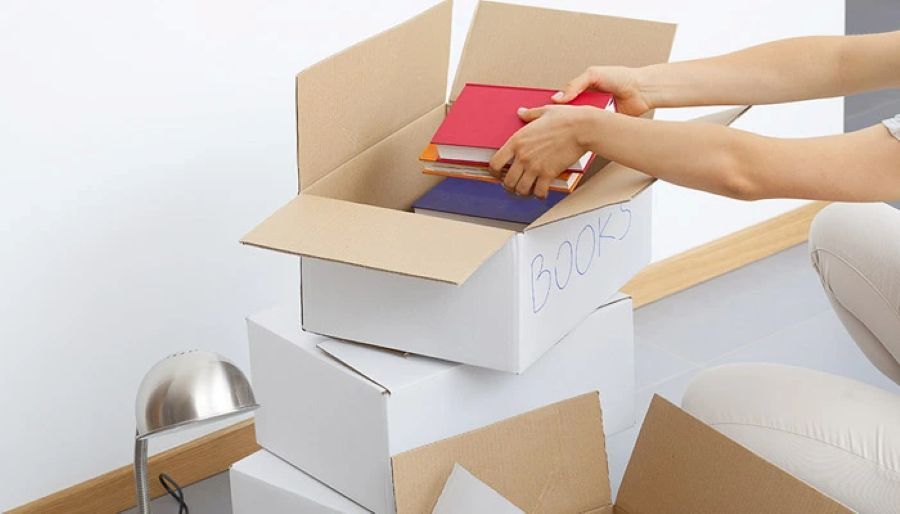Where to Start When You Move Into a New House
To Start When You Move Into a New House Start with safety first. Change your locks, find your water shut-off valve, and test your smoke detectors. Then set up your utilities like water and electricity. After that, you can focus on cleaning, unpacking, and making friends with your neighbors.
Safety First: Make Your House Secure
When you get the keys to your new house, safety should be your first thought. You want to make sure your family is safe and secure.
Change All Your Locks Right Away
This is the most important thing to do when you move in. You never know who else has keys to your house. The old owners might have given keys to family, friends, or even repair people. Don't take any chances.
Call a locksmith or buy new locks at your local hardware store. Change the locks on:
- Front door
- Back door
- Side doors
- Garage door
If you have a security system, change those codes too. This simple step will help you sleep better at night.
Find Your Water Shut-Off Valve
Find the main water shut-off valve in case you need to shut off the water to your entire house. This is super important if you have a water leak or need repairs.
The valve is usually:
- In your basement (in cold areas)
- Outside near your water meter (in warm areas)
- In an underground box with a removable lid
Make sure everyone in your family knows where it is and how to use it.
Test Your Smoke and Carbon Monoxide Detectors
According to the National Fire Protection Association, smoke alarms are one of the cheapest, easiest and most effective means of protecting your family and your home from a fire but they have to be functioning.
Walk through your house and:
- Find all smoke detectors
- Test each one by pressing the button
- Replace batteries if needed
- Check for carbon monoxide detectors too
Bring extra batteries when you move in. Nothing is worse than a smoke detector that starts beeping at 3 AM!
Know Your Electrical System
Behind the door is the main breaker for the entire house, usually at the top of the panel, and two rows of other breakers below it, each controlling individual circuits.
Find your electrical panel and:
- Test that you can flip the main breaker
- Check if there's a guide showing what each breaker controls
- Make your own guide if one doesn't exist
This will help you if the power goes out or you need to turn off electricity for repairs.
Get Your Utilities Up and Running
You can't live in a house without basic utilities. Water, electricity, and gas are must-haves. Internet and cable make life more comfortable too.
Set Up Water, Gas, and Electricity
Generally, utilities should be set up at least 2 – 3 weeks in advance of your move. But if you're already moving in, call right away.
Contact your local utility companies to:
- Turn on water service
- Start gas service (if you use gas)
- Connect electricity
- Set up garbage pickup
Some areas let you choose your utility company. Others have only one option. Either way, you'll need to:
- Give them your new address
- Show proof that you own or rent the house
- Set up payment methods
Get Internet and Cable Connected
It doesn't hurt to make a few friends before moving into the neighborhood. But first, you'll want to research internet providers in your area.
Many companies offer packages that include:
- Internet
- Cable TV
- Phone service
Shop around for the best deal. Installation might take a few days, so book early.
Change Your Address with USPS
The U.S. Postal Service processed 28.3 million address changes in 2023. You won't be alone in this process!
Change your address on the USPS website at least two weeks before you move. You can do this online for a small fee, or visit your local post office for free.
Don't forget to tell:
- Your bank
- Credit card companies
- Insurance companies
- Your employer
- Your kids' schools
Clean Your New House Thoroughly
Even if your house looks clean, you should still clean it yourself. No matter how clean your new place looks, the previous owners definitely left behind some dirt.
Start with a Deep Clean
There could be animal hair, dust or other allergens hiding almost anywhere. Focus on these areas:
Kitchen:
- Wipe down all appliances inside and out
- Clean the refrigerator before plugging it in
- Test all burners and the oven
- Clean cabinet shelves
Bathrooms:
- Scrub the toilet, tub, and shower
- Clean mirrors and medicine cabinets
- Replace toilet seats if you want
- Check that all faucets work
Throughout the house:
- Vacuum all carpets
- Mop hard floors
- Wipe down light switches and door handles
- Clean windows
Consider Hiring Professional Cleaners
If you're too busy or tired to clean, hire professionals. Cleaning services cost between $30 and $50 an hour. They can do a deep clean while you focus on other moving tasks.
Inspect Your New Home for Problems
Moving in is a great time to check for problems. It's easier to fix things when the house is empty.
Check for Water Leaks
One clever trick to make sure there are no water leaks of any kind is to register the readings of your water meter at the start and end of a period of several hours when no water is being used.
Walk through your house and look for:
- Dripping faucets
- Running toilets
- Water stains on walls or ceilings
- Wet spots on floors
Test Your Sump Pump
Pour water into your sump pump to make sure it works. The most common time for one to fail is the first heavy rainfall after months of not being used.
If you have a basement, this is really important. A broken sump pump can flood your basement.
Look for Pest Problems
If you notice any unpleasant signs of pest infestation, deal with the issue on your own or call a pest control company if your efforts fail.
Check for signs of:
- Mice or rats
- Ants
- Termites
- Other bugs
It's much easier to deal with pests before you unpack all your stuff.
Make Your New House Child and Pet Safe
If you have kids or pets, you'll need to make your house safe for them too.
Childproof Your Home
If you just moved into a new home with a baby or toddler, your house will have to go one step beyond the usual household security.
Start with the nursery:
- Remove everything from the crib except the baby and mattress sheet
- Secure the changing table so it won't tip over
- Put guards on windows
- Cover electrical outlets
Throughout the house:
- Install safety gates at stairs
- Put locks on cabinets with cleaning supplies
- Cover sharp corners on furniture
- Secure heavy furniture to walls
Help Your Pets Adjust
Dogs and cats have a developed sense of smell and can usually sniff out traces of other pets who may have lived in the house before.
Moving is stressful for pets. Help them by:
- Keeping their routine as normal as possible
- Setting up their bed and toys in a quiet room
- Watching for signs of stress or depression
- Giving them time to explore their new home
Unpack the Essentials First
Don't try to unpack everything at once. Start with the things you need most.
Create a "First Night" Box
A "first-night" box is beneficial during a move. Pack this box with:
- Clothes for a few days
- Toiletries
- Medications
- Phone chargers
- Snacks and water
- Bedding and pillows
- Basic tools
- Flashlight and batteries
Set Up Your Bedroom First
Prioritize unpacking your bedroom and bathroom essentials first to ensure a comfortable first night in your new place.
After a long day of moving, you'll want a comfortable place to sleep. Make sure you have:
- A made bed
- Clothes for the next day
- A working lamp
- Access to a bathroom
Stock Your Kitchen with Basics
Plug in your new fridge and stock your kitchen with essentials.
You don't need to unpack everything, but get these ready:
- Coffee maker and coffee
- Basic dishes and cups
- Snacks and easy meals
- Cleaning supplies
- Paper towels
Meet Your New Neighbors
It doesn't hurt to make a few friends before moving into the neighborhood. Introduce yourself to your neighbors during the moving process.
Your neighbors can be a great resource. They might:
- Tell you about the best local restaurants
- Recommend good repair people
- Keep an eye on your house when you're away
- Help in emergencies
A simple "Hi, I'm your new neighbor" goes a long way.
Update Your Insurance and Important Documents
Moving is a good time to review your insurance and update important information.
Review Your Home Insurance
Make sure your new home is properly covered. Contact your insurance company to:
- Update your address
- Review your coverage limits
- Add any new valuable items
- Ask about discounts for security systems
Update Your Car Insurance
Notify other insurers, such as health, life, dental or boat insurance, of your new address.
Your car insurance rates might change based on your new address. Call your insurance company to:
- Update your address
- See if your rates will change
- Ask about new discounts
Find New Doctors and Healthcare
One of the most important things you need to do when moving into a new house in a new city is to find the right healthcare providers for you and your family.
Don't wait until you're sick to find a doctor. Research and contact:
- Family doctors
- Dentists
- Specialists you might need
- Nearby hospitals
Ask your old doctors to send your medical records to your new providers.
Register for Local Services
You'll need to update your information with local government services too.
Update Your Driver's License
TheFederal Motor Carrier Safety Administration requires drivers to update their license within specific timeframes after moving. Check your local requirements, but usually you need to:
- Visit the DMV or similar office
- Bring proof of your new address
- Pay a small fee
- Get a new license with your new address
Register Your Kids for School
Register your kids for their new school or after-school programs.
If you have school-age kids, contact your new school district to:
- Register your children
- Transfer school records
- Learn about bus routes
- Find out about after-school programs
Update Your Voter Registration
After moving, you can update your voter registration.
This is important for local elections. You can usually:
- Register online
- Register at your local election office
- Register when you update your driver's license
Plan Your Budget for the First Few Months
It's easy to spend extra money on a new home and decorations and upgrades can add up.
Moving costs money, and so does setting up your new home. One rule of thumb is to save a minimum of 1 percent of the home's purchase price each year for repairs.
Expected Moving Costs
According to U.S. News and World Report, costs for hiring movers to manage a long-distance move could soar past $5,000. Budget for these expenses:
- Utility setup fees
- New locks and security system
- Cleaning supplies or professional cleaning
- Basic repairs
- New household items you might need
Create a Home Maintenance Fund
Your new home will need repairs and maintenance. The U.S. Department of Housing and Urban Development recommends saving at least 1 percent of the home's purchase price each year for repairs.
Start saving money now for:
- HVAC service
- Roof repairs
- Plumbing issues
- Electrical problems
- Appliance repairs
Take Care of Yourself During the Move
It's not uncommon to feel depressed after moving into a new house. Moving is stressful, and it's normal to feel overwhelmed.
Give Yourself Time
Don't try to do everything at once. It's best to live in your home for at least a couple of months before starting any major projects.
Focus on:
- Getting the basics set up
- Making your home safe and comfortable
- Taking breaks when you need them
- Asking for help when you need it
Stay Connected with Friends and Family
Maintain friendships via video chat, phone calls and email. Don't lose touch with your old friends just because you moved.
Explore Your New Community
Meet new people through community activities and social events. Look for:
- Local clubs or groups
- Community events
- Volunteer opportunities
- Classes or workshops
Create a Moving Timeline
Here's a simple timeline to help you stay organized:
Week 1:
- Change locks
- Set up utilities
- Find water shut-off valve
- Test smoke detectors
- Do a safety inspection
Week 2:
- Deep clean the house
- Unpack essentials
- Set up bedroom and bathroom
- Stock kitchen basics
- Meet neighbors
Month 1:
- Update insurance
- Find new doctors
- Register for local services
- Update voter registration
- Create maintenance fund
Month 2-3:
- Finish unpacking
- Join community groups
- Plan any needed repairs
- Settle into routines
Resources for Edmonton Area Movers
If you're moving in the Edmonton area,Last Stop Moving offers professional moving services to help make your move easier. They providepacking services,local moving, and can help with yourmoving checklist.
For specific areas, they serve:
They also offerstorage solutions if you need temporary storage during your move.
Final Thoughts
Moving into a new house doesn't have to be scary. Start with safety, get your utilities working, and clean your home. Then focus on the basics like unpacking essentials and meeting your neighbors.
Remember, you don't have to do everything at once. Take your time, ask for help when you need it, and enjoy the process of making your new house feel like home.
Your new home is waiting for you to fill it with memories. Start with these simple steps, and soon you'll wonder why you ever felt nervous about moving in.
Ready to make your move? Take it one step at a time, and before you know it, you'll be settled into your new home sweet home.



